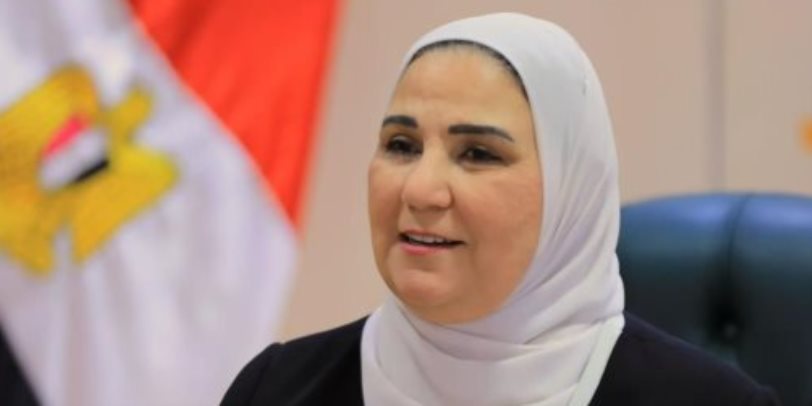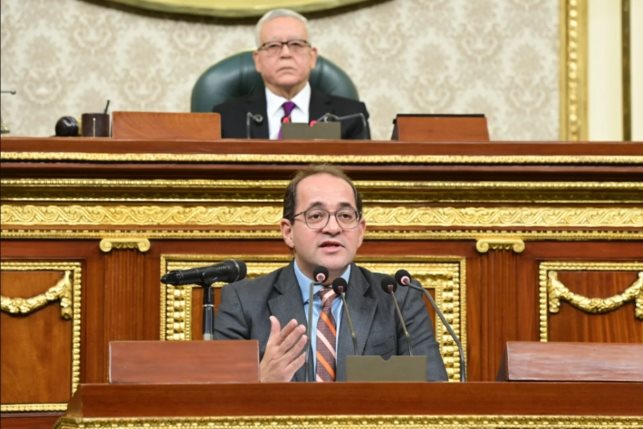Egypt's Pioneering Efforts in Social Welfare: Comprehensive overview at "Hekayet Watan" conference
Egypt's commitment to social justice and welfare takes center stage at the 'Hekayet Watan' conference.
 Minister of Social Solidarity Dr. Nevine El-Kabbaj outlines the nation's progress in uplifting diverse segments of society - Press Photo
Minister of Social Solidarity Dr. Nevine El-Kabbaj outlines the nation's progress in uplifting diverse segments of society - Press Photo
In her address at the "Hekayet Watan" (A Nation's Story) conference, Dr. Nevine El-Kabbaj, the Minister of Social Solidarity, highlighted Egypt's journey towards social justice and welfare, emphasizing the pivotal role played by the 2014 Constitution as a social contract between the government and its people, rooted in active participation.
"In 2014, social justice was a fundamental demand of the people, and the government placed it at the forefront of its priorities.
Specific policies for social protection were initiated to cater to all segments of society, prioritizing those most in need because these are fundamental rights.
Budgets were allocated accordingly, with the Ministry of Social Solidarity reaching unprecedented funding levels during President Sisi's tenure," stated Dr. El-Kabbaj.
Furthermore, the minister emphasized that part of this protective framework involved investing in human capital, as these individuals would, in turn, invest in the nation. Dr. El-Kabbaj highlighted the importance of nurturing various segments of society, including single mothers, differently-abled individuals, pensioners, and early childhood care recipients, all of whom are integral to Egypt's national narrative.
Dr. El-Kabbaj stressed that the scope of the Ministry of Social Solidarity extends beyond social protection, describing it as a comprehensive set of measures and benefits aimed at providing citizens with a minimum monthly income.
She also clarified that social protection doesn't imply unemployment, as some recipients are unable to work due to various reasons. Thus, it's essential to provide them with the necessary skills to transition from social support to participating in development projects.
"The projects initiated by the Ministry of Social Solidarity are not limited to rural areas; we work across rural, urban, and desert regions. Our approach is holistic and inclusive," concluded Dr. El-Kabbaj.





